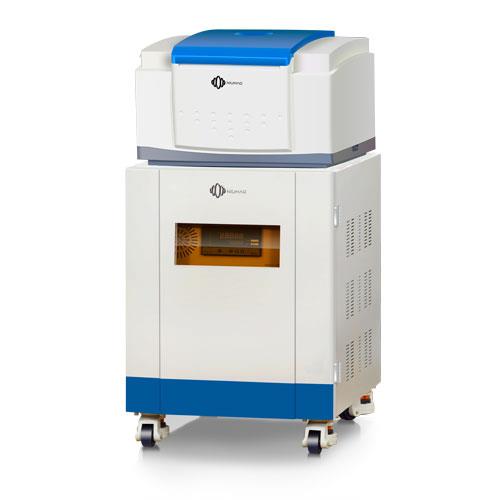Seeds Oil Content NMR
Understanding and managing the moisture content of seeds is critical for ensuring the overall quality, stability, and efficiency of seed oil production. Proper control and monitoring of moisture levels throughout the seed processing and oil production chain are essential steps in delivering high-quality seed oils to consumers.
Applications of Seeds Oil Content and Moisture Content
Quality Assurance: The moisture content in seeds significantly impacts the quality of the resulting seed oils. High moisture content can lead to various issues such as rancidity, mold growth, and decreased shelf life. Ensuring that seeds have an appropriate moisture level is vital for producing high-quality oils.
Storage Stability: Seeds with excessive moisture are more susceptible to spoilage during storage. Elevated moisture levels can promote the growth of microorganisms, such as molds and bacteria, which can degrade the oil and lead to unpleasant odors and flavors. Controlling moisture content is crucial for maintaining the long-term stability of seed oils.
Extraction Efficiency: The moisture content in seeds can affect the efficiency of oil extraction processes. High moisture levels can hinder oil extraction and reduce oil yield. Conversely, overly dry seeds may require more energy and time for extraction, impacting the overall production process.
Seed Type and Variability: Different types of seeds have varying optimal moisture levels. Environmental conditions during growth and harvest, as well as geographical factors, can introduce variability in seed moisture content. Hence, monitoring and adjusting moisture levels based on seed type and origin are essential for consistent oil quality.
Oil Composition: Moisture content can influence the chemical composition of the oil. High moisture levels can lead to hydrolysis of triglycerides, resulting in the formation of free fatty acids and other undesirable compounds. Proper moisture control helps maintain the desired chemical profile of the oil.
Storage Conditions: Even after oil extraction, moisture can continue to affect oil quality during storage. Oil and seeds should be stored in conditions that prevent moisture ingress, as moisture can lead to oxidation and other deteriorative reactions in the oil.
Seeds Oil Content Measured by Low Field NMR
Low-field NMR is a powerful technique for assessing the oil moisture content within seeds. This method capitalizes on the fundamental principle that the NMR signal of hydrogen atoms in a sample is influenced by the local magnetic field, which, in turn, is shaped by the chemical environment surrounding those hydrogen atoms.
In the context of seeds, the hydrogen atoms within oil and water molecules occupy distinct chemical environments, giving rise to unique NMR signals. By analyzing these NMR signals, it becomes possible to accurately determine the oil moisture content of the seeds.
One key advantage of low-field NMR is its non-destructive nature. This means that the sample can be analyzed without causing any damage. This is in stark contrast to some alternative methods, like the oven method, which require the sample to be subjected to drying, effectively altering or destroying it in the process.
Furthermore, low-field NMR exhibits the unique capability of measuring both oil and moisture content within the same sample without necessitating additional processing steps. This inherent efficiency not only saves time but also minimizes the potential for errors in the analysis. However, it’s important to acknowledge that low-field NMR does have certain limitations. Its applicability may vary across different seed types, and the accuracy of measurements can be influenced by factors such as sample temperature and homogeneity. Despite these limitations, low-field NMR remains an increasingly popular and valuable technique for measuring seed oil moisture content, particularly within the food and agriculture industries.
Advantages of Low-Field NMR
Non-Destructive: Low-field NMR is non-destructive, allowing for sample analysis without altering or destroying it. This stands in contrast to methods like the oven-based approach, which require sample destruction during analysis.
Speed and Precision: Low-field NMR provides fast and highly accurate measurements of both oil and moisture content within seeds. Its sensitivity allows for the detection of minute changes in the sample.
Versatility: This NMR technique can be applied to a wide array of materials, including solids, liquids, and gases, making it a versatile choice for various applications.
Minimal Sample Preparation: Low-field NMR necessitates minimal sample preparation, reducing the time and cost associated with the analysis, especially compared to techniques requiring extensive preparation.
No Hazardous Chemicals: The method does not rely on hazardous chemicals, contributing to its safety and environmental friendliness compared to some alternative methods.
Portability: Low-field NMR systems can be designed to be portable, enabling their use in the field or remote locations. This is particularly advantageous compared to laboratory-bound techniques.
 NIUMAG
NIUMAG


